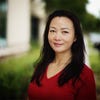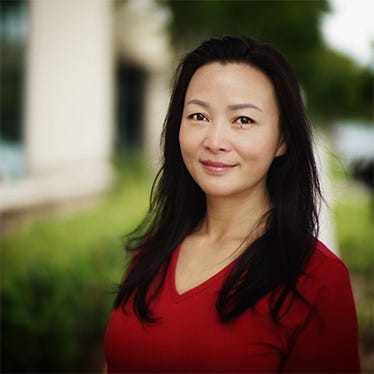TCM and cognitive health in aging
Breviscapine, astaxanthin, ginseng and ginkgo are among the ingredients Chinese medicine has used for centuries to support brain health.

Traditional Chinese medicine (TCM) is based on more than 3,500 years of ancient Oriental medical practices including herbal supplements, therapies and treatments. It focuses on theories about qi, the vital energy which flows along channels called meridians and helps the body to maintain optimal health. In June 2018, the World Health Organization (WHO) updated its International Statistical Classification of Diseases and Related Health Problems (ICD) to include TCM diagnoses.
With thousands of years of practice behind these organic ingredients, people are continuing to seek natural remedies to improve cognitive health as they age. Specific herbs have been used and studied for centuries to help with both prevention and healing in regards to cognitive health. Although aging is an irreversible process, it’s wise to try to help prevent and address cognitive changes to live a fulfilled and healthy life.
Over the years, dozens of organic ingredients and extracts have been recognized for improving cognitive health and helping slow the natural decline in aging, while aiding the brain in remaining sharp and focused. From the thousands of scientific studies supporting these findings, some of the ingredients popular for the brain and neurological health are highlighted below.
Breviscapine
Breviscapine (Erigeron breviscapus extract) is a compound containing more than 90% scutellarin (the primary active flavone). The plant has been used for centuries by people who practice TCM. While it has been used in many different forms over the years, it is well-understood that scutellarin affects the cerebrovascular system. Studies have found Erigeron breviscapus to have the effects of relieving exterior syndrome, dispelling cold, relieving pain, expelling wind and removing dampness, and warming collaterals.1 With an increased blood flow in the brain, communication between the neural synapses quickens and becomes stronger so that a person can learn and recall new information more easily.
Breviscapine is backed by more than 300 scientific studies including cognitive-related research such as “Clinical Observation of Breviscapine in Treatment of Patients with Vascular Dementia,” which showed breviscapine can improve cerebral blood flow, protect nerve tissue and improve neurologic impairment while stimulating the recovery of cognition and memory in vascular dementia patients.2
As blood flow increases throughout one’s brain, the person may notice a sense of greater clarity. Neurons responsible for memory retainment and learning depend upon blood flow to transport oxygens and nutrients to them. When one experiences an increased blood flow, communication between the neural synapses quickens and enhances—making it easier to learn and recall new information.
Astaxanthin
Astaxanthin is a potent antioxidant found naturally in marine organisms such as lobster, shrimp, algae, salmon, trout, krill and crayfish. Haematococcus pluvialis is a freshwater organism known for its high astaxanthin content.
According to studies, astaxanthin can slow brain aging by “increasing brain-derived neurotrophic factor (BDNF) levels in the brain, attenuating oxidative damage to lipids, protein, and DNA and protecting mitochondrial functions.”3 Astaxanthin exhibits a strong protective effect on the human brain because its chemical structure allows it to easily cross the blood-brain barrier.
Panax notoginseng
Panax notoginseng root is used for a wide variety of health benefits. It can help reduce and prevent hardening of the arteries, or atherosclerosis, which is a major factor for strokes; as well as help reduce swelling of the blood vessels, including in the brain, which is another stroke risk factor.4
Besides supporting blood vessel health and healthy blood flow, panax notoginseng root also shields the brain from damage made by oxidative stress in neurological illnesses.5 Overall, panax notoginseng is shown to have a function of anti-brain aging as the main ingredients help prevent cell senescence-associated diseases.6 As more studies are being completed, it is becoming increasingly apparent that ginsenosides yield neuroprotective effects by reducing free radical production and improving brain function.7
Ginkgo
Another popular ingredient recognized to benefit cognitive health is Ginkgo biloba, a tree native to China that has been used in TCM and as a natural functional food additive for centuries. Ginkgo has high levels of both flavonoids and terpenoids, which are known for their strong antioxidant effects.
Antioxidants fight against the negative effects of free radicals, which are reactive particles the body produces during metabolic processes such as turning food into energy. On the contrary, free radicals have the potential to damage healthy tissues which contributes to accelerated aging and disease.
One study showed that taking a high dose of ginkgo extract (as EGb 761) improved Alzheimer’s patients’ memory and their capabilities to handle daily life like household chores and bathing.8
Enhancing the relationship between one’s brain, spririt and lifestyle with certain ingredients, herbs and enhancements such as acupressure can make a drastic difference with cognitive health in aging. Even though there is not yet a known cure for brain diseases such as Alzheimer's and Parkinson's disease, it is recognized that adopting a healthy lifestyle can reduce damage to the cells in the brain and help prevent or slow down the progression of certain illnesses. In addition to the ingredients mentioned aboved, many others are recognized to support brain health, including lemon balm, a sleep aid known to improve memory and cognition;9 and rosemary, which helps with cognition, memory and alertness.10
Jing Struve has over 16 years’ experience in the industry and is the executive director at Farlong Pharmaceutical. Inspired by the healing power of ancient remedies, she is passionate about applying these remedies in concert with modern technology to assist people in living healthier and better lives. Farlong produces Panax notoginseng, breviscapine and astaxanthin from seed to shelf, and sells gingko and 400 other supplements and ingredients.
References
1. Wang L, Ma Q. “Clinical benefits and pharmacology of scutellarin: A comprehensive review.” Pharmacol Ther. 2018;190:105-127.
2. Xiong Z et al. “Protective effects of breviscapine on ischemic vascular dementia in rats.” Biol Pharm Bull. 2006;(9):1880-1885.
3. Sorrenti V et al. “Astaxanthin as a Putative Geroprotector: Molecular Basis and Focus on Brain Aging.” Mar Drugs. 2020;(7):351.
4. Duan L et al. “Panax notoginseng Saponins for Treating Coronary Artery Disease: A Functional and Mechanistic Overview.” Front Pharmacol. 2017;8:702.
5. Zhou N et al. “Antioxidative effects of Panax notoginseng saponins in brain cells.” Phytomedicine. 2014;21(10):1189-1195.
6. Yang X et al. “Protective effects of panax notoginseng saponins on cardiovascular diseases: a comprehensive overview of experimental studies.” Evid Based Complement Alternat Med. 2014;204840.
7. Ong WY et al. “Protective effects of ginseng on neurological disorders.” Front Aging Neurosci. 2015;7:129.
8. Kandiah N et al. “Treatment of dementia and mild cognitive impairment with or without cerebrovascular disease: Expert consensus on the use of Ginkgo biloba extract, EGb 761®.” CNS Neurosci Ther. 2019;25:288-298.
9. Scholey A et al. “Anti-stress effects of lemon balm-containing foods.” Nutrients. 2014;6(11):4805-4821.
10. Moss M et al. “Aromas of rosemary and lavender essential oils differentially affect cognition and mood in healthy adults.” Int J Neurosci. 2003;113(1):15-38.
About the Author
You May Also Like

